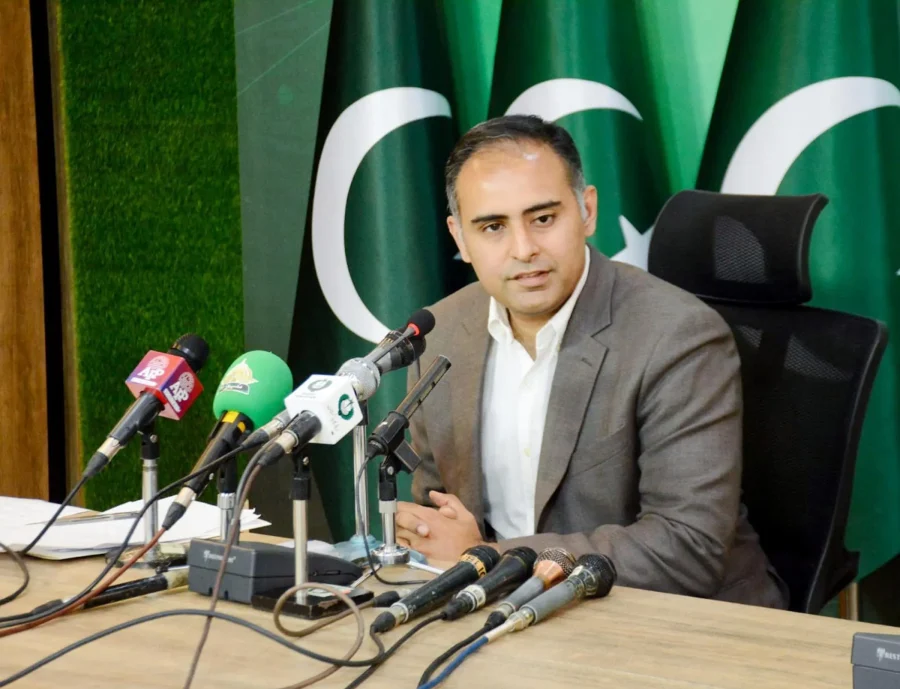Coordinator to Prime Minister on Economy and Energy Bilal Azhar Kayani on Wednesday categorically said that the government had no plan to impose additional tax on income of the agriculture sector.
Addressing a news conference here, he said it was unfortunate that those who pushed the country to the verge of default were now attempting to dent the International Monetary Fund (IMF) programme.
He expressed firm resolve that the Pakistan Muslim League-Nawaz (PML-N) would continue to take the country’s journey towards economic stability and progress forward after coming into power in the next general elections.
He mentioned that the government had successfully entered into a nine-month Stand-By-Agreement (SBA) with the IMF, which was the result of the Prime Minister Shehbaz Sharif’s dedicated efforts that received overwhelming support from the entire nation.
One significant indicator of the country’s economic growth was observed on July 3 when the Pakistan stock exchange experienced a remarkable increase of 2446 points, with the index surpassing the 45,000 mark.
This positive development was well-received by the business and trading communities, signifying their confidence in the government’s economic policies, he added. Kayani highlighted that Fitch, a renowned credit rating agency, also improved Pakistan’s rating from minus ’CCC ‘ to ‘+CCC’ further bolstering the nation’s economic position.
Acknowledging the concerns surrounding loans acquired from the IMF, the Prime Minister himself acknowledged the necessity of such measures for Pakistan’s economic well-being. As a result, the country’s foreign reserves increased, and exchange rate stability was achieved, effectively eliminating the threats of default.
In addition to the assistance of around $4.2 billion from the IMF, Saudi Arabia and the United Arab Emirates (UAE), China also recently rolled over a loan of $600 million.
Bilal Azhar emphasized that certain elements within the nation had attempted to undermine the national economy by engaging in petty politics. However, these destructive seeds have been uprooted, and those who once desired Pakistan to default are now opposing the IMF program, perplexed by the country’s resilience, he added.
He said despite the challenging decisions, the government has ensured that the socially vulnerable classes receive financial assistance through the social protection program. Reconstruction and development efforts are also underway in areas affected by devastating floods.
He denounced the spread of misinformation about the IMF program, particularly false claims of additional taxes.
He clarified that all changes have been incorporated within the budget, reducing expenditures by 85 billion rupees while increasing the Benazir Income Support Programme (BISP) budget.
Addressing the confusion regarding taxation on agriculture, he stated that no new taxes had been imposed on the agricultural sector.
He emphasized the government’s commitment to continuing the journey of economic stability while implementing a series of reforms.
The decision to adopt the IMF program was driven by necessity, as defaulting would have severely impacted the common people, especially those belonging to economically weaker sections of society, he expressed.
Bilal pointed out the situation in Sri Lanka, where extended power outages, fuel shortages, and long queues for essential resources occurred. He attributed these challenges to vested interests that deliberately tried to cripple the country’s economy.










